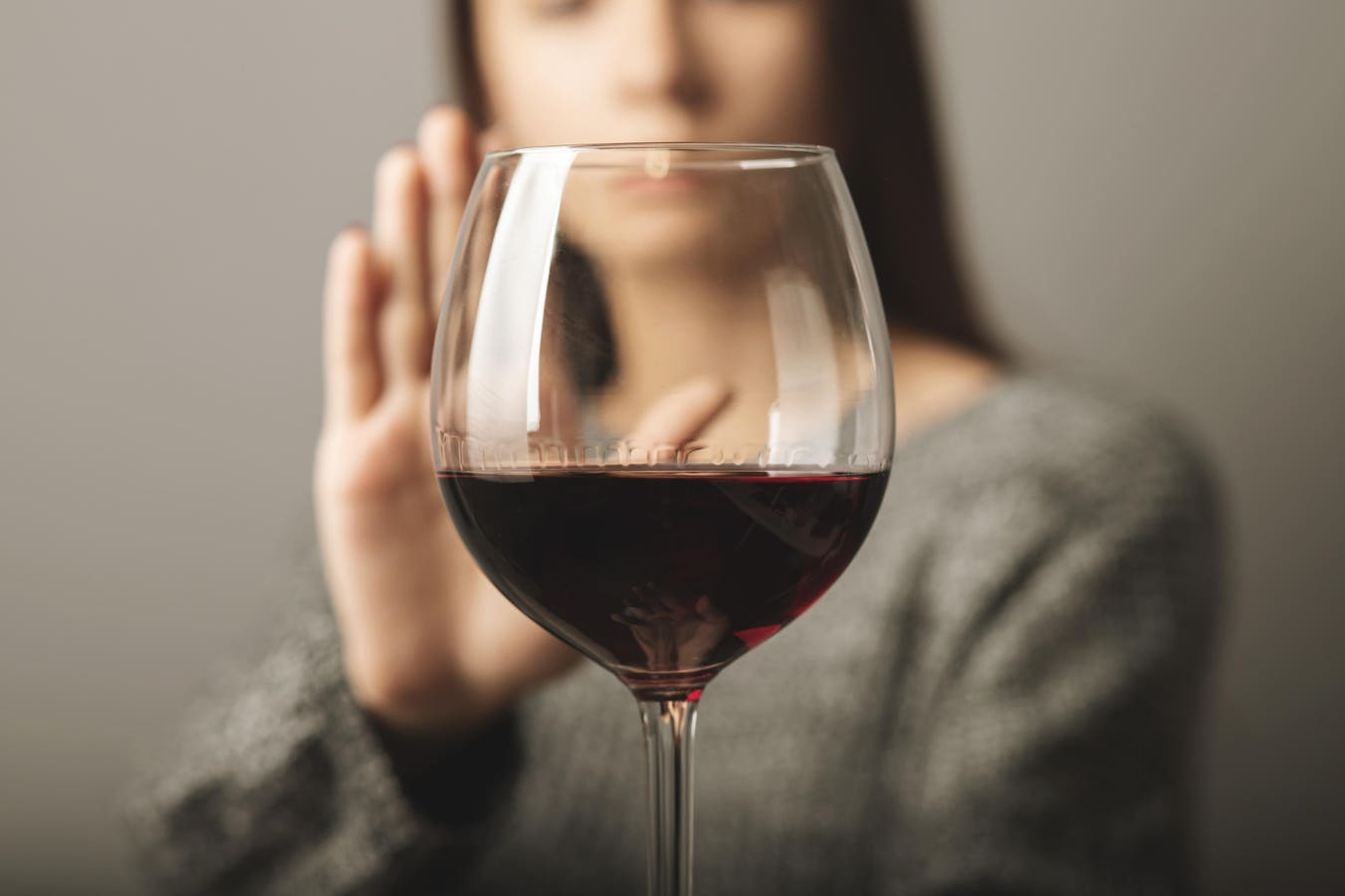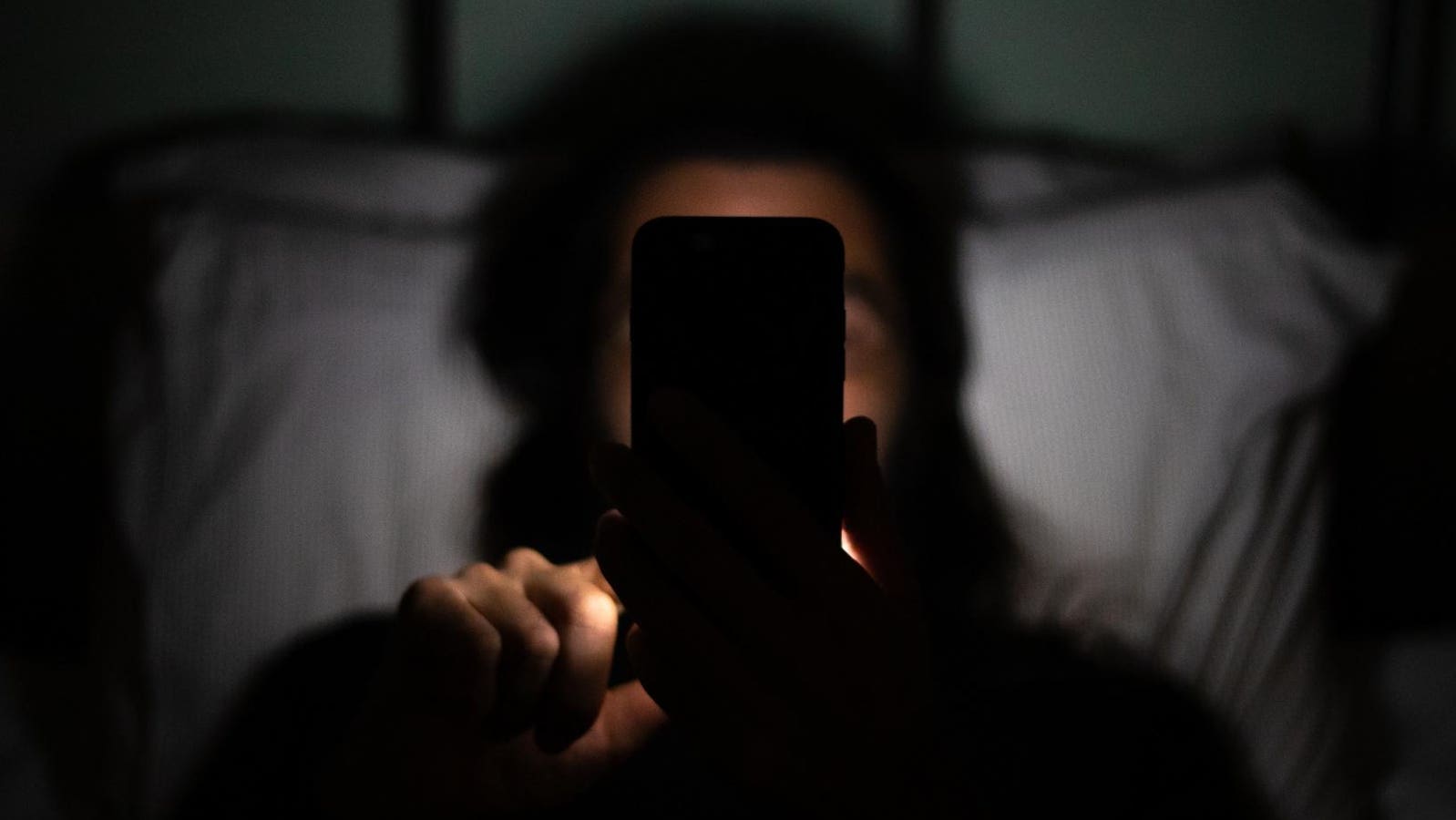A young woman refusing a glass of wine
getty
Before the start of each academic year in higher education, there appears to be questions from incoming students and their families about how much do college students drink alcohol. According to the 2023 National College Health Assessment by the American College Health Association, 63.7% of college students in the survey reported using alcohol in their lifetime, and 57.7% reported using alcohol in the past 3 months. However, national surveys about alcohol use often have limitations, such relying on self-reports or not distinguishing between what type of alcohol is being used and in what context does the drinking occur. Caroline Albritton Sahba is an Associate Director for Counseling and Mental Health at Texas Christian University (where I serve as the Director), and leads the Substance Use and Recovery Services on campus. Sahba commented, “No matter which survey results you read, the perception of use rarely matches the reality of self-reported substance use, especially alcohol.”
Sahba warned against misperceptions in the mainstream media that all college students drink alcohol. She stated, “This misperception can unfortunately mislead the student’s behavior: influencing them to drink earlier, more frequently, or more amounts than they may have if they had a more realistic perception of alcohol use on college campuses.” Sahba’s arguments are supported by research. According to a 2023 study in the journal of Alcohol, Clinical and Experimental Research, the drinking behavior of college students was related to the proportion of social network members who post alcohol-related social media content. This study also found that seeking advice from friends who post alcohol content on social media was linked to a greater number of alcohol-related consequences. Such consequences were also a concern for Sahba as she reported, “Another mistake I see college students and parents make regarding the perception of alcohol, is not addressing the direct correlation, sometimes causation, that it has to undesired academic and social outcomes.”
Misperceptions About Alcohol Use And Sober Curiosity
Dr. Shelley Long is a licensed psychologist who is known for instilling hope and building authentic bonds with clients. She’s also the founder of Sobriety Out Loud! Long argued that many college students have misperceptions about sober curiosity. She commented, “Sober curious differs from sobriety in that it doesn’t necessarily mean eliminating alcohol altogether; it’s about being more mindful and intentional about when, why, and how much you drink.” Long discussed how the industry of sober coaching has risen in popularity, which is designed to help people develop a mindful approach to alcohol, or help eliminate alcohol use, with the help of an empathetic coach.
Long further argued that it’s a misperception to think that only students with a past history of alcohol concerns maintain sobriety. She said, “The benefits of sobriety reach deeply into physical, mental, emotional, relational, and spiritual improvements. Some of the obvious physical benefits include better sleep, more energy, improved health, and fewer accidents or injuries. Additionally, alcohol is linked to an increased risk of at least seven types of cancer!” The psychologist discussed how many students avoid alcohol to save money and time, focus on genuine connections, explore hobbies, set boundaries, and to increase confidence. Long described these students as a source of encouragement and said, “It’s important to remember that sobriety isn’t about what you’re giving up (booze), it’s about everything you gain.”
Misperceptions About Alcohol Use And Recovery
Sarah Oliveira-McDonald is the Director of Strategic Partnerships for La Hacienda Treatment center. According to a 2025 report on Lahacienda.com, this treatment center has set the standard for professional residential facilities for alcohol and drug rehabilitation for over 40 years. Oliveira-McDonald argued that a common myth is that people must hit rock bottom before seeking help. According to Oliveira-McDonald, early intervention leads to better outcomes, and college-age students who struggle with alcohol use disorders have the opportunity to get support during a formative stage of development, which can change the trajectory of their lives.
Oliveira-McDonald discussed her own journey of recovery, “For me, my personality and how much I was drinking, treatment was the only option. I tried AA, I tried counseling, I tried medication. I needed a spiritual solution and I could only attain that by going to a 30-day treatment center and learning how to stay sober. I needed to be a student and learn from others how to do this. The biggest misconception is the stigma around going to “rehab” I like the word treatment. It’s softer and kinder.”
Oliveira-McDonald elaborated on the concerns that many have about seeking treatment. “Treatment for substance use disorder is effective because it addresses the whole person—biological, psychological, social, and spiritual. Addiction is a complex, chronic brain disease, not a moral failing, and effective treatment provides the tools and support needed for lasting recovery. It’s not just about abstinence; it’s about building a meaningful, balanced life.”
In summary, it’s true that many students will be tempted by the potential distractions of alcohol use while in college. However, not every student will give in to this temptation and some students won’t even view alcohol as tempting for a variety of reasons. For those who struggle with alcohol use, there are reasons to be encouraged because the traditional college-aged years are often an opportune time to seek help.









